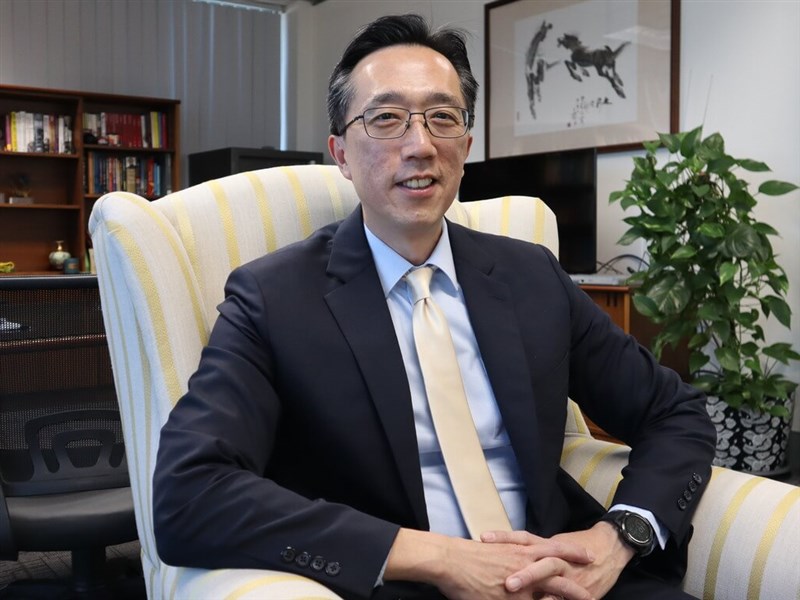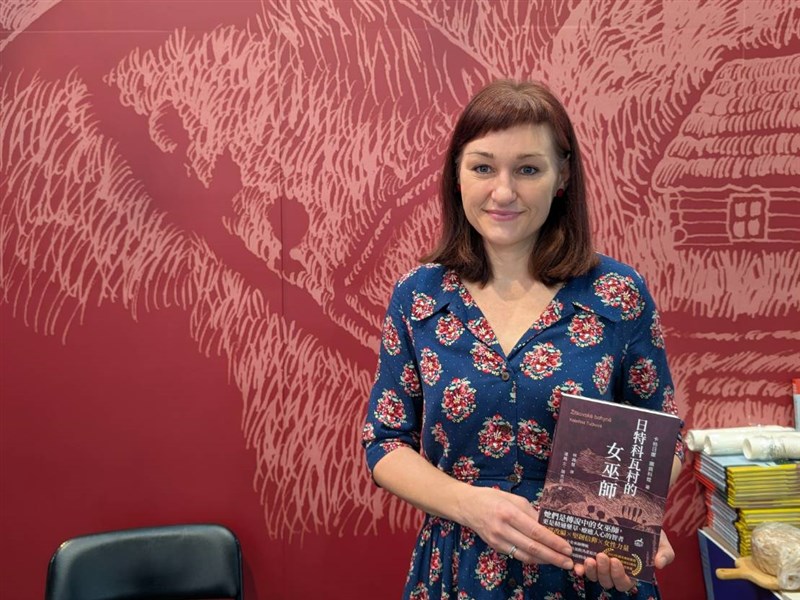INTERVIEW / Berlin envoy says German office in Taiwan expanding as ties deepen
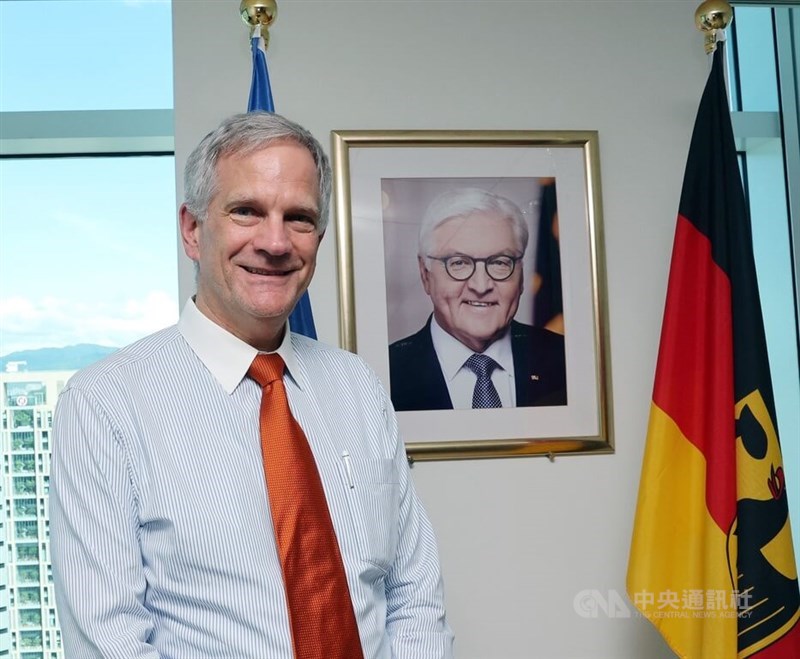
Taipei, Sept. 22 (CNA) Germany's de facto embassy in Taiwan is expanding its diplomatic presence as Berlin seeks to deepen relations with Taipei, the country's new representative Karsten Tietz said in an exclusive interview with CNA on Thursday.
Tietz, who assumed office in August, said the German Institute Taipei -- which represents Berlin's interests in Taiwan in the absence of formal diplomatic ties -- was undergoing a period of growth as Germany looks to strengthen supply chain resilience and adapt to shifting geopolitical dynamics.
"We now define our relations with Taiwan" in line with Germany's Strategy on China, which emphasizes the need to de-risk Germany's economic relations with China and diversify supply chains, Tietz said.
"We'll still be doing a lot of business with China, but not exclusively. So we are looking for other partners to diversify, and Taiwan is one of them," he said.
Semiconductors and beyond
The envoy described Taiwan as a key partner in efforts to make supply chains in semiconductors and other critical industries more resilient, citing shared values of freedom and democracy, as well as respect for the rules-based international order.
Bilateral collaboration is not confined to semiconductors, which have gained momentum with TSMC's project to build a foundry in Dresden, eastern Germany, he said, noting that the two sides had recently signed agreements to strengthen scientific cooperation in microelectronics, AI and hydrogen.
Given Taiwan's growing importance to Berlin's agenda, the representative said the German Institute Taipei will add four new staff members by January 2026, bringing the total to 25, including local hires.
In particular, the number of people handling political, economic and cultural affairs will double from two to four between September and next January, he said, describing this expansion as "a clear signal that we place high importance on our relations [with Taiwan] and want to be more visible."
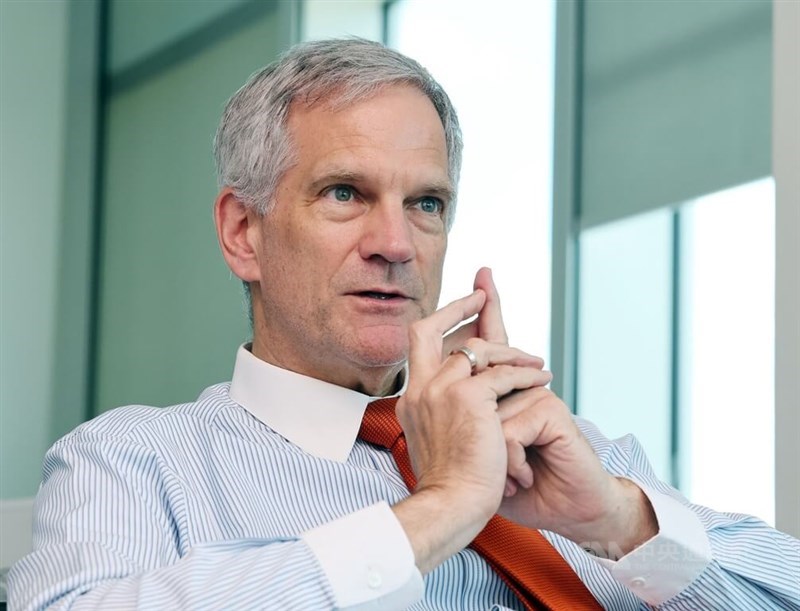
Germany has also stepped up its regional presence, with two German military vessels transiting the Taiwan Strait in September 2024 for the first time in 22 years -- drawing ire from Beijing, which claims both sides of the strait as Chinese territory.
Tietz said the passage of the German vessels through international waters was an act of freedom of navigation and that it "should not be an issue at all."
In addition to Germany, other G7 nations -- including the United States, the United Kingdom, Canada, France and Japan -- have in recent years sent military vessels through the Taiwan Strait to assert the freedom of navigation principle.
Hong Kong
The 55-year-old career diplomat previously served in the U.S., Thailand, and Hong Kong before assuming his current post as director general of the German Institute Taipei, succeeding Jörg Polster, who held the role for four years.
Tietz said his tenure as deputy consul general from 2015 to 2018 in the former British colony, where he witnessed the erosion of civil liberties following the failure of the Umbrella pro-democracy movement, "left a lasting impact" on him.
"I basically saw how a free society turned into one where people don't dare to exercise freedoms ... I have a deep understanding for people in Taiwan who caution against believing that the 'one country, two systems' would work better when they see what has happened in Hong Kong," Tietz said.
The one country, two systems "didn't work in Hong Kong ... it doesn't exist anymore," Tietz said of the political arrangement that once promised 50 years of autonomy in the city and that China's leader Xi Jinping (習近平) has vowed to apply to Taiwan once Beijing achieves its goal of absorbing the island.
Societal resilience
While Tietz found it extremely encouraging that Taiwanese society shares the values of Germany and the European Union, he highlighted the challenges facing democracies and stressed the urgent need to strengthen Germany's defense capabilities and societal resilience.
Germany, like other European nations, is facing aggression from Russia, which launched a full-scale invasion of Ukraine in 2022 and has escalated further by sending drones into the airspace of Poland, a NATO member, Tietz said.
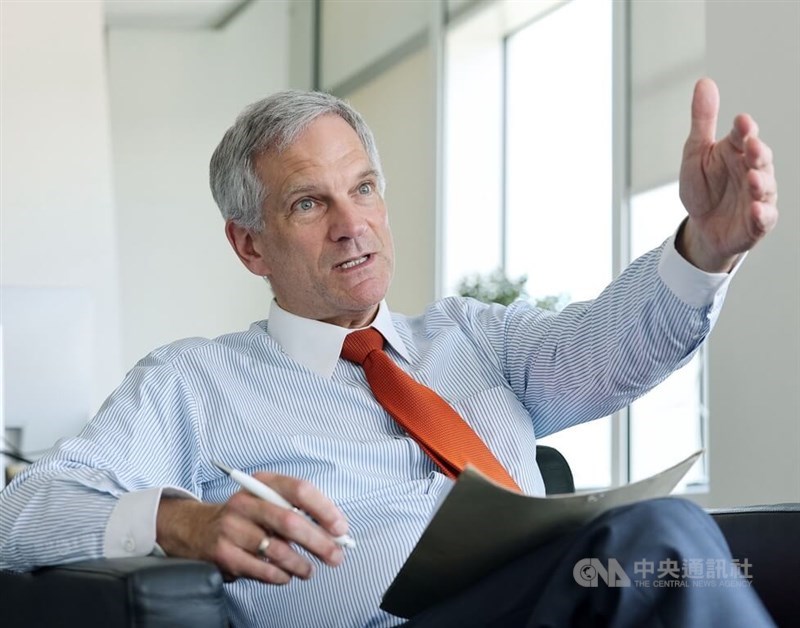
Against this backdrop, Tietz underscored Berlin's decision to increase defense spending in line with NATO policy pledges, noting that German society was coming to terms with the reality that "even though we are not at war, we are not living in peace anymore."
"All our freedoms, all our social welfare, all our aspirations of young people ... [they] mean nothing if ... we are too weak to defend our society and to defend the values Germany and the European Union stand for," he said.
-
![Taiwan's top envoy to Australia seeks cooperation on minerals, drones]() Taiwan's top envoy to Australia seeks cooperation on minerals, dronesAs Australia looks to recalibrate its economic relationship with China, Taipei is hoping to strengthen bilateral ties and partner with Canberra in such areas as critical minerals and drones, said Douglas Hsu (徐佑典), Taiwan's representative to Australia.02/26/2026 11:16 AM
Taiwan's top envoy to Australia seeks cooperation on minerals, dronesAs Australia looks to recalibrate its economic relationship with China, Taipei is hoping to strengthen bilateral ties and partner with Canberra in such areas as critical minerals and drones, said Douglas Hsu (徐佑典), Taiwan's representative to Australia.02/26/2026 11:16 AM -
![Czech author reflects on cultural erasure under authoritarian rule]() Czech author reflects on cultural erasure under authoritarian ruleWhen best-selling Czech author Kateřina Tučková was in Taiwan earlier this month to promote the Chinese version of her novel "The Last Goddess," she said she felt the story would resonate with Taiwanese readers because of a common authoritarian past.02/22/2026 04:35 PM
Czech author reflects on cultural erasure under authoritarian ruleWhen best-selling Czech author Kateřina Tučková was in Taiwan earlier this month to promote the Chinese version of her novel "The Last Goddess," she said she felt the story would resonate with Taiwanese readers because of a common authoritarian past.02/22/2026 04:35 PM -
![Director Tsou Shih-ching challenges gender norms in 'Left-Handed Girl']() Director Tsou Shih-ching challenges gender norms in 'Left-Handed Girl'Superstitions passed down through generations can shape people's lives in subtle yet lasting ways. In her debut solo feature film "Left-Handed Girl" (左撇子女孩), director Tsou Shih-ching (鄒時擎) uses one such belief to examine gender roles and social expectations imposed on women in Taiwanese society.02/22/2026 11:04 AM
Director Tsou Shih-ching challenges gender norms in 'Left-Handed Girl'Superstitions passed down through generations can shape people's lives in subtle yet lasting ways. In her debut solo feature film "Left-Handed Girl" (左撇子女孩), director Tsou Shih-ching (鄒時擎) uses one such belief to examine gender roles and social expectations imposed on women in Taiwanese society.02/22/2026 11:04 AM
-
Politics
Taiwan-U.S. trade deal still in limbo: Premier
03/03/2026 01:06 PM -
Business
Taiwan's consumer confidence weakens slightly in February
03/03/2026 11:07 AM -
Business
U.S. dollar higher in Taipei trading
03/03/2026 10:42 AM -
Culture
Mandopop singer Sun Yanzi to perform at Taipei Dome in May
03/03/2026 10:22 AM -
Society
Heavy rain advisory in effect for Nantou County
03/03/2026 10:16 AM
